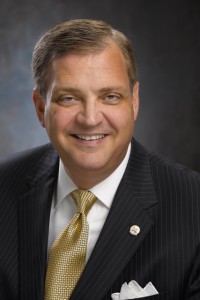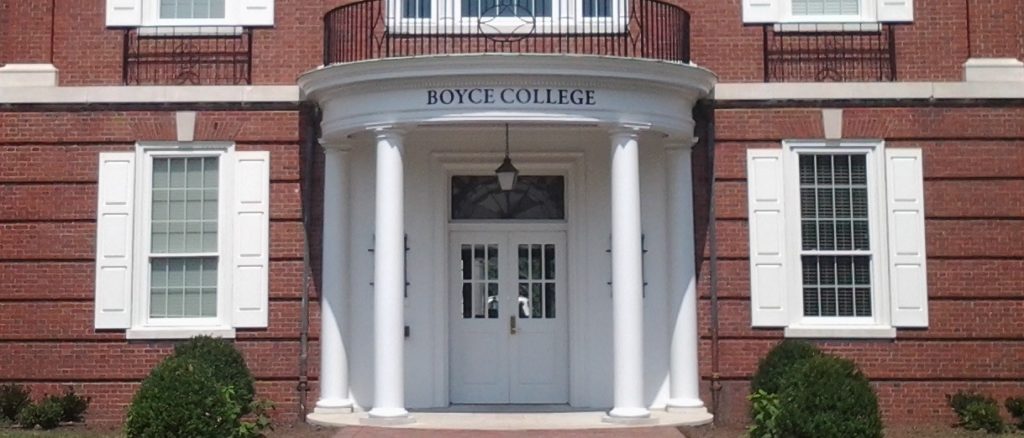A Southern Baptist seminary that believes the Bible forbids women from being pastors and that being homosexual is a sin has been wrong before, according to a 71-page report released Wednesday on slavery and racism in the history of Southern Baptist Theological Seminary.

Albert Mohler
Citing “a sinful absence of historical curiosity,” seminary president Albert Mohler commissioned six professors to produce the document inspired by a similar research project by Princeton University in 2017.
“We must repent of our own sins, we cannot repent for the dead,” said Mohler, who has staked his 25-year presidency on fidelity to Southern Seminary’s founding Abstract of Principles adopted in 1858. “We must, however, offer full lament for a legacy we inherit, and a story that is now ours.”
“The history of the Southern Baptist Theological Seminary is intertwined with the history of American slavery and the commitment to white supremacy which supported it,” the report begins. Then as now, those holding what are perceived today as errant views regarding racial equality defended them by quoting Scripture.
“Southern Seminary’s faculty and trustees were sincerely convinced that they were interpreting the Bible and evaluating the moral status of slavery correctly,” the report says.
While it is common knowledge that Southern Seminary’s four founding faculty members all owned slaves, the study delves into little-known stories about individuals such as Joseph E. Brown, an early trustee chairman and important donor credited with saving the school from financial collapse who got rich by exploiting mostly black convict labor in a system that one author described as “slavery by another name.”
The study says that after the Civil War, the seminary’s faculty largely accepted the “Lost Cause” mythology of the South, popularized by books such as Margaret Mitchell’s Gone With the Wind. John R. Sampey, the seminary’s fifth president and three-time president of the Southern Baptist Convention, routinely invoked the moral example of Confederate general Robert E. Lee into the 1940s.
The seminary faculty supported civil rights for blacks in the 1950s and 1960s but not the direct-action tactics advocated by leaders of the Civil Rights Movement. Duke McCall, who served as president until 1982, apologized for allowing Martin Luther King Jr. to speak on campus in 1961, after threats to withhold funding and calls for him to resign.
The seminary appointed its first African-American professor in 1986.
“We have not overcome all the contradictions, but we are committed to doing so,” the report concludes. It cites writings by the current president against the “heresy of racial superiority” and a 2015 convocation address celebrating diversity with the line: “If the church gets this wrong, it’s not just getting race and ethnic difference wrong. It’s getting the gospel wrong.”

Boyce College, the undergraduate division of Southern Seminary, is named in honor of the seminary’s first president, James Petigru Boyce, who owned at least 23 slaves. (Wikipedia)
While the Southern Baptist Convention officially apologized for past mistreatment of blacks in 1995, the issue of white supremacy gained urgency after violence at a 2017 “Unite the Right” rally in Charlottesville, Virginia, of white nationalist and other right-wing groups energized by the election of President Donald Trump.
The SBC adopted a resolution in 2017 denouncing “every form of racism, including alt-right white supremacy, as antithetical to the Gospel of Jesus Christ” in a rare parliamentary do-over after a mostly white resolutions committee previously rejected the statement proposed by an African-American pastor as poorly written and inflammatory.
“Southern Seminary’s faculty and trustees were sincerely convinced that they were interpreting the Bible and evaluating the moral status of slavery correctly.”
More than 30 cities across the United States have removed or relocated Confederate statues and monuments during the last year, and some have proposed going as far as sandblasting the faces of Jefferson Davis, Robert E. Lee and Stonewall Jackson off of state-owned Stone Mountain in Georgia.
Mohler indicated it is unlikely that Southern Seminary will follow their example.
“In light of the burdens of history, some schools hasten to remove names, announce plans, and declare moral superiority,” he wrote in a letter accompanying the report. “That is not what I intend to do, nor do I believe that to be what the Southern Baptist Convention or our Board of Trustees would have us to do.”
Mohler brought up the possibility of removing the names of slaveholders from campus buildings in 2015 but dismissed the idea in honor of the founders’ “courageous affirmation of biblical orthodoxy, Baptist beliefs, and missionary zeal.”
